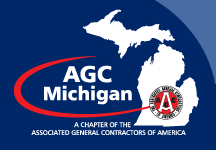In Michigan, a construction lien must be recorded within 90 days after the
lien claimant last furnished labor or materials to a project. And a court action to enforce a
construction lien must be started within one year of recording.
But what happens after a year if the lien claimant takes no
action to enforce their lien? How do you remove an old lien?
As a practical matter, a lien “expires” after more than one year
if the claimant doesn’t file a lawsuit to enforce the lien. But old
construction liens aren’t discharged automatically and remain part of the county property records. An old lien can disrupt the sale or refinancing of a property.
Section 128 of the Michigan Construction Lien Act (MCL 570.1128), however,
provides a remedy and a process to discharge an old construction lien.
Discharging an old construction lien in Michigan is a 3-step process:
1. Prepare an Affidavit. The affidavit must state your
relationship to the property (ie., that you are the fee owner or the agent for the owner), describe the property (parcel number, legal description, and address), and provide information
about the lien, including the date it was recorded.
The property includes the legal description (metes
and bounds), the parcel number, and the common street address. This
information is included with your property tax bill, but will also be included
with the (old) construction lien you’re trying to discharge.
Attach
the construction lien to the affidavit.Have the affidavit notarized. Make a copy.
2. Submit the Affidavit to the County Clerk. Send the affidavit and a letter to the County Clerk requesting they examine their records; and if no proceedings to enforce the construction lien have been
commenced, execute and deliver a certificate of that fact,
bearing the seal of the circuit court. Some clerks charge a small fee for
preparing the certificate.
3. Record the Certificate. The certificate issued by the
County Clerk, confirming no action was filed to enforce the construction
lien within a year of recording, must then be recorded with the Register of Deeds to complete the lien
discharge process. An unrecorded certificate is of little value. The recorded certificate discharges the old lien. The Register of Deeds is usually down the hall from the County Clerk. The recording fee is about $30.
For more information or help with discharging an old construction lien, contact
Peter Cavanaugh or Gary Quesada at (248) 543-8320. Or visit our website
- www.MichiganConstructionLaw.com







